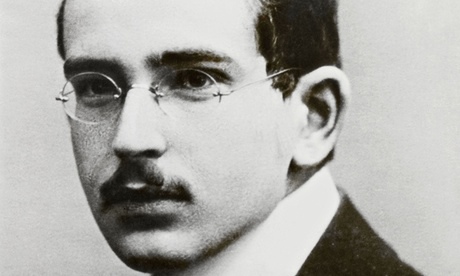
Walter Benjamin, one of the first theorists to ponder the social impact of mass media, understood that new technologies are somehow supernatural: they elasticise the laws of physics and in doing so extend our physical powers. Benjamin thrilled to the uncanny tales of ETA Hoffmann, who conjured wizards and ogres “out of thin air”, and he was equally entranced by the way thin air mysteriously transmits radio waves. In 1927, five years before he exiled himself from Germany in advance of the Nazi putsch, Benjamin began a series of experimental broadcasts on this new medium. His scripts, here collected for the first time, were conversations with people who remained invisible, unknown – strangers in the limbo he called “voice land”.
Benjamin welcomed radio as a “theatre of education”, less an addition to the stock of “cultural goods” than a means of training the judgment of its audience and encouraging independent thought. He wrote playlets that acted out techniques for resolving “typical conflict situations of modern life”; for instance, demonstrating how to ask your boss for a raise or a friend for a loan – useful tools in the hyper-inflationary 1920s. Benjamin also used radio necromantically: like the medium at a seance, it relayed messages from spirits wandering through the remote German past. In one of his more ambitious scripts, the Voice of the Enlightenment vies with the Voice of Romanticism for possession of the country’s soul, with portentous gongs marking the rounds of the metaphysical debate.
The most engaging talks in Radio Benjamin have a less strenuous agenda, because they were intended for children. Benjamin didn’t patronise his young audience, though he wondered in an aside whether “children should hear these kinds of stories”. The stories in question were an anthology of ancient and modern disasters, ranging from the destruction of Pompeii to the Lisbon earthquake and ending with the collapse of a railway bridge across the Firth of Tay and the horrific Mississippi flood of 1927. Another disquieting broadcast described the violence of Chicago mobsters during prohibition; Benjamin was anxious to record a supplementary programme about the Ku Klux Klan, whose exploits, he promised, reduced the iniquities of criminal gangs to “child’s play”.
Despite his philosophical hauteur and his Marxist conscience, he couldn’t suppress an attraction to the irrational demonism that runs through German history. He thought of science as white magic, because it performs miracles under controlled conditions in laboratories; but black magic excited him too, and he quoted with approval Luther’s opinion that “the devil rules the world”. Faust, who sells his soul to the prince of darkness in return for enhanced knowledge, recurs in these broadcasts like a nagging neurosis.
In one of Benjamin’s plays, an allegorical voice that speaks for the entire 19th century says that Goethe’s version of the Faust story is “the world legend of the German bourgeoisie”, and goes on to explain that his puppet show exhibits the “sufferings and humiliation” of the German people. Marionettes had an eerie fascination for Benjamin and, like Hoffmann, he “equated the satanic and the automatic”: the devil ruled the world, as Hitler ruled Germany, by making people behave as predictably as machines. In his broadcasts about catastrophes, Benjamin blamed the loss of 2,000 lives in a theatre fire in Canton on the herd mentality of the Chinese, whose sense of immersion in a crowd or mass, he said, “is stronger than it can ever be in the European people”. Fascism in Germany, Italy and Spain proved him wrong.
Benjamin never forgot that radio was a domestic appliance: “The listener receives the programming in his home, where the voice is like a guest.” After 1933, when the Nazis took control of Germany’s airwaves, such polite protocols were suspended. A welcome guest no longer dispensed sage advice or told cautionary stories; instead, one man harangued a crowd, shouting tirades at top volume. A medium that Benjamin hoped would encourage listeners to think for themselves now addressed the masses collectively, and in response expected only an arm jerked upwards and a choral chant of “Heil!”
Radio Benjamin is published by Verso (£20). Click here to buy it for £16

